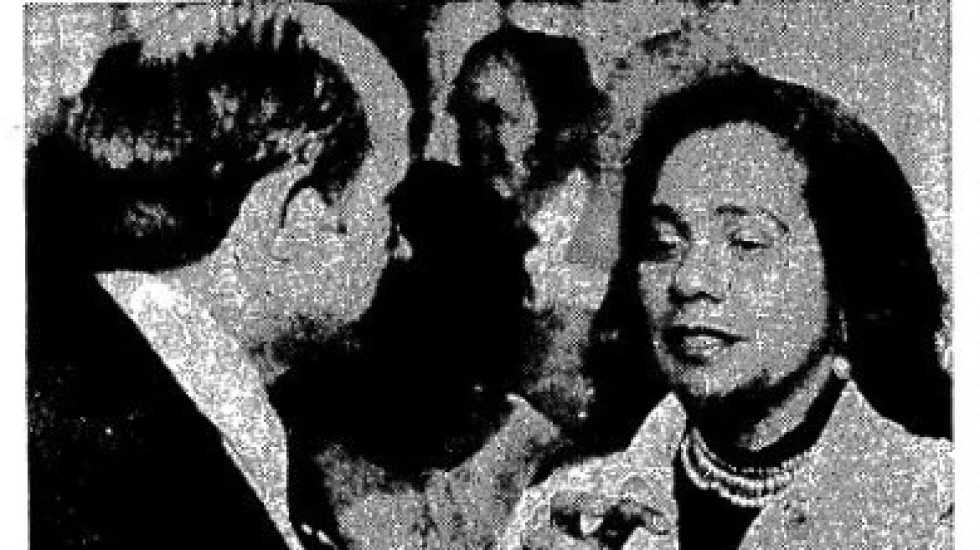
As published in the Chicago Daily News, sister publication of the Chicago Sun-Times:
The FBI had it in for Dr. Martin Luther King, Jr. The federal law enforcement agency began monitoring him in December 1955 during the Montgomery bus boycott, according to Standford University’s The Martin Luther King, Jr. Research and Education Institute. Bureau chief J. Edgar Hoover hated the civil rights leader, believing him a communist. From 1955 until the leader’s death, the FBI’s domestic counterintelligence program (COINTELPRO) attempted to discredit him and even encouraged him to commit suicide.
But that surveillance didn’t stop with Dr. King’s death in April 1968, nor did it ever exclude his wife, Coretta Scott King. The activist and singer, born this week on April 27, 1927, stood up for herself and her late husband after reports exposing COINTELPRO were published in the 1970s.
Established covertly in 1956, COINTELPRO originally targeted groups with communist sympathies, the FBI says, but it quickly expanded operations to monitor other groups including the Southern Christian Leadership Conference and Dr. King. Highly illegal, the program engaged in phone tapping, physical surveillance and organizational infiltration all without warrants, Britannica says. The program came to an end in March 1971 after the Citizens’ Commission to Investigate the FBI broke into a Pennsylvania FBI office, stole files (including some related to COINTELPRO) and then released them to the press.
Chicago Daily News columnist Jack Anderson reported details of Coretta Scott King’s surveillance on May 16, 1972. The records collected were fairly recent.
“When a documentary film about her late husband was appearing around the country, the top cops were busy counting receipts,” Anderson wrote in his column. “The movie's first run, says a confidential memo dated Aug. 5, 1970, ‘resulted in receipts in excess of $2,000,000. By arrangements made prior to March 24, 1970, by Coretta Scott King and officials of the SCLC, the receipts for this movie were to be divided equally between King and the SCLC.’”
In 1975, the U.S. Senate Select Committee to Study Governmental Operations with Respect to Intelligence Activities, also known as the Church Committee, launched an investigation into COINTELPRO. In a hearing on May 6, 1976, Daily News reporter Robert Gruenberg, reporting in Washington, D.C., detailed how FBI agents sought help from a Chicago cardinal to discredit Dr. King and how the FBI continued monitoring Coretta Scott King past 1968.
“In 1966, according to the committee, the FBI sent an agent to try to convince Cardinal [John] Cody to help ‘neutralize the effect’ of Dr. King in Chicago,” the reporter wrote. “The committee reported that Cardinal Cody apparently was briefed ‘about alleged Communist influence on Dr. King and about Dr. King’s private life.’”
After leaving the meeting, the agent noted in an internal memo that he felt that Cardinal Cody would “do everything possible to neutralize King’s effect,” Gruenberg added. A spokesperson for the Archdiocese of Chicago called the report “absolutely false.”
Dr. King’s death did not end the FBI’s campaign to discredit him, although it chose not to target Coretta Scott King immediately, Gruenberg said. The Atlanta bureau office proposed a covert operation to surveil her “in the event the bureau (FBI) is inclined to entertain counterintelligence action against (her) and/or the continuous projection of the public image” of Dr. King. Ultimately, Hoover rejected this proposal, but she remained under some surveillance.
Almost three weeks later, Coretta Scott King — in town for a Leadership Council for Metropolitan Open Communities luncheon — called for greater oversight of the FBI and other intelligence agencies.
She accused President Gerald Ford’s administration of “appealing to meanness and pettiness and spite” rather than “offering bold programs to deal with the real problems of this nation,” Daily News reporter Walter Morrison wrote. She urged “strict controls on the intelligence agencies, and an end to the flagrant, illegal, unconstitutional abuses that have been revealed.”
In 2007, FBI files obtained by the Associated Press showed that the agency ceased covert operations on Coretta Scott King on Nov. 30, 1972. Andrew Young, a King confident throughout the civil rights movement, told the AP he was surprised the government focused on her at all.
“I didn’t know it and I don’t think she knew it,” Young said. “If ever there was a woman that had the makings of a saint, it was Coretta.”







